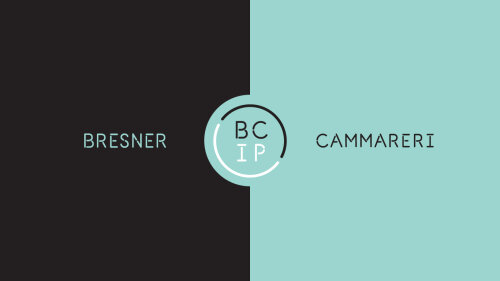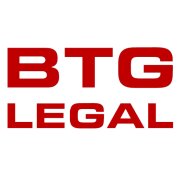Best Cyber Law, Data Privacy and Data Protection Lawyers in Milan
Share your needs with us, get contacted by law firms.
Free. Takes 2 min.
List of the best lawyers in Milan, Italy
About Cyber Law, Data Privacy and Data Protection Law in Milan, Italy
Cyber Law, Data Privacy, and Data Protection encompass a broad legal framework that regulates the digital sphere in Milan, Italy. As a hub of technology and business innovation, Milan is at the forefront of implementing stringent regulations aligned with European standards, primarily driven by the General Data Protection Regulation (GDPR). Cyber Law covers the legal aspects of internet use, cybersecurity, and electronic commerce, while Data Privacy and Protection focuses on safeguarding personal data against unauthorized access and processing. Together, they aim to ensure secure digital interactions and protect individuals’ privacy rights.
Why You May Need a Lawyer
Engaging a lawyer specializing in Cyber Law, Data Privacy, and Data Protection in Milan may be necessary in several scenarios:
- Businesses launching new online services need legal compliance with regional data protection laws.
- Individuals facing data breaches and seeking compensation or resolution.
- Companies requiring advice on data processing agreements and cross-border data transfers.
- Startups seeking to develop robust cybersecurity policies to protect sensitive information.
- Victims of cybercrimes like identity theft, hacking, or phishing attacks.
- Organizations needing representation in disputes arising from digital transactions.
Local Laws Overview
Milan, under Italy's jurisdiction, adheres to several laws concerning Cyber Law, Data Privacy, and Data Protection. Here are some key aspects:
- GDPR Compliance: The GDPR forms the foundation for data protection laws, setting strict guidelines for data processing and ensuring the privacy of individuals within the EU.
- Italian Privacy Code: Complementing the GDPR, this code provides additional stipulations specific to Italy regarding data processing and privacy.
- E-commerce Legislation: Laws governing online commercial activities focus on consumer protection, contracts, and electronic transactions.
- Cybersecurity Framework: Initiatives at national and regional levels aim to bolster cybersecurity capabilities, guided by the National Cybersecurity Strategy.
- Data Breach Notification: Organizations must promptly inform authorities and affected individuals about data breaches, as per legal requirements.
Frequently Asked Questions
What is the GDPR, and how does it affect businesses in Milan?
The General Data Protection Regulation is a comprehensive EU regulation that standardizes data protection laws across the region. It mandates businesses to ensure transparent data collection, provide data access rights to users, and impose hefty penalties for non-compliance.
How can I ensure my business is GDPR compliant?
Businesses should conduct regular audits, implement data protection policies, train staff on data privacy, and appoint a Data Protection Officer if necessary to maintain GDPR compliance.
What are my rights concerning data protection as an individual?
Individuals have several rights under GDPR, including the right to access, rectify, erase, and restrict processing of their data, as well as the right to data portability and to object to data processing.
What steps should I take if my data is breached?
Promptly report the breach to appropriate authorities, notify potentially affected individuals, and engage legal assistance to address any resulting claims.
Is it legal to transfer personal data outside of the EU?
Data transfers outside the EU are allowed under specific conditions, such as when adequate safeguards are ensured or standard contractual clauses are incorporated into agreements.
How does Italian law address cybercrimes?
Italian legislation, augmented by international agreements, penalizes various cybercrimes such as hacking, data interference, and cyber fraud, with strict legal repercussions.
What role does a Data Protection Officer (DPO) play?
A DPO oversees data protection strategies, ensures compliance with regulations, and acts as a liaison between the organization and data protection authorities.
How can businesses secure their digital transactions?
Implementing strong encryption methods, using secure protocols, conducting regular vulnerability assessments, and adhering to legal guidelines are essential measures for securing digital transactions.
What legal recourse is available for victims of identity theft?
Victims can report the crime to law enforcement, seek restitution through civil suits, and engage lawyers to navigate the complex legal processes involved.
Are there any local guidelines for online marketing practices?
Yes, marketing activities must comply with data privacy laws, including obtaining explicit consent for data use and following unsubscribe requests promptly.
Additional Resources
- Italian Data Protection Authority (Garante per la protezione dei dati personali): The primary body overseeing data protection compliance in Italy.
- Milan Chamber of Commerce: Offers resources and support for businesses in compliance with digital and e-commerce legislations.
- European Data Protection Board: Provides guidelines and comprehensive information on implementing GDPR measures.
- National Cybersecurity Agency: Offers insights into cybersecurity strategies and threat mitigation.
Next Steps
If you need legal assistance in Cyber Law, Data Privacy, and Data Protection in Milan, consider the following steps:
- Conduct thorough research to identify specialized legal firms or practitioners in Milan.
- Prepare a brief outline of your legal needs and any documents related to your case for consultation.
- Engage in initial discussions with potential lawyers to understand their approach, experience, and fees.
- Decide on a suitable legal advisor who offers expertise aligned with your requirements.
Taking prompt action ensures you remain compliant and effectively address any legal issues related to the digital landscape in Milan.
Lawzana helps you find the best lawyers and law firms in Milan through a curated and pre-screened list of qualified legal professionals. Our platform offers rankings and detailed profiles of attorneys and law firms, allowing you to compare based on practice areas, including Cyber Law, Data Privacy and Data Protection, experience, and client feedback.
Each profile includes a description of the firm's areas of practice, client reviews, team members and partners, year of establishment, spoken languages, office locations, contact information, social media presence, and any published articles or resources. Most firms on our platform speak English and are experienced in both local and international legal matters.
Get a quote from top-rated law firms in Milan, Italy — quickly, securely, and without unnecessary hassle.
Disclaimer:
The information provided on this page is for general informational purposes only and does not constitute legal advice. While we strive to ensure the accuracy and relevance of the content, legal information may change over time, and interpretations of the law can vary. You should always consult with a qualified legal professional for advice specific to your situation.
We disclaim all liability for actions taken or not taken based on the content of this page. If you believe any information is incorrect or outdated, please contact us, and we will review and update it where appropriate.













